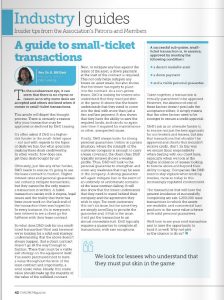To the unobservant eye, it can seem that there is no rhyme or reason as to why some deals are accepted and others declined when it comes to small-ticket transactions.
This article will dispel that thought process. There is certainly a reason why your transaction may be approved or declined by D&D Leasing.
It’s often asked if D&D is a higher-risk funder in the small-ticket space – – not just with regards to the types of deals we buy, but what goes into making those deals creditworthy. In other words: how does one get their deals bought by us?
Ultimately, just like any other funder, D&D needs to ensure it’s going to see the lease contract to fruition. Higher interest rates and personal guarantees can certainly mitigate transactions, but they cannot be the only reason a transaction is written. A failed transaction carries with it stigma, legal issues and the reality that there has been more work on the back end of the transaction then was hoped for. In every instance, it’s in everyone’s best interest to see a client go the full term their lease contract.
So what does D&D look for in a small-ticket transaction? First and foremost we’re looking for a solid exit strategy; understanding that the above doesn’t always happen, that a client contract doesn’t go all the way through to fruition. There then must be a viable exit strategy on the equipment itself. The assets purchased need to have a value throughout the term of the lease contract and importantly, a solid resale value. Ideally, this resale value should make up the majority of the value of the nullified contract.



